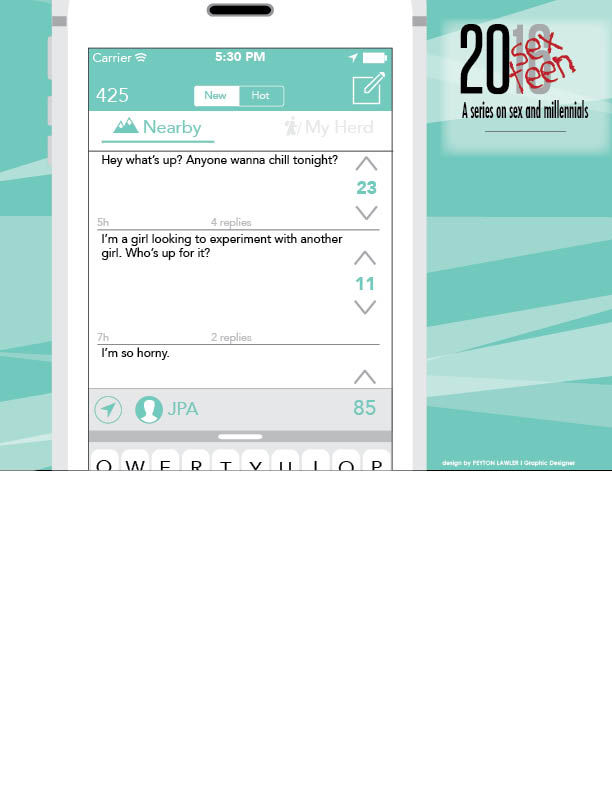Apps offer different “hook up” opportunities
March 17, 2016
Apps like Yik Yak and Tinder make looking for some “Netflix and chill” action easier than ever.
Research shows people define “hooking up” in different ways, said Associate Professor of Sociology and Family Studies Amber Paulk. Some say it is kissing. Others may mean intercourse, oral sex or touching. Many people who are dating refer to their sexual encounters as hooking up.
There has always been hooking up, she said. Even people in Roman times were hooking up.
“Most college students report they have had at least one hook up,” Paulk said. “With apps like Tinder and Yik Yak, it just provides people with a different way to go about seeking that opportunity.”
The safety issues with these apps is concerning, said Title IX Coordinator Tammy Jacques.
“How do we look out to make sure we’re not putting ourselves at risk?” she said.
Nearly half of the 20 million new sexually transmitted diseases diagnosed each year are among people ages 15-24, according to the Centers for Disease Control and Prevention. About one in four of all new HIV infections is among people ages 13-24.
About half of the hook ups involve oral sex or intercourse, Paulk said. But, people are only using condoms about half of the time.
There are many reasons why they may not be using condoms, she said. It may be embarrassment of bringing the subject up. Other reasons could include alcohol, belief that things like pregnancy and STDs happen to other people or feeling that mentioning condom use will cause the other person to leave.
Hooking up is fine, said sophomore Bryant Hasheider.
“There are dangers to it, but I feel like we should be more open to things like getting tested regularly and keeping ourselves healthy,” he said.
Hasheider said he did hook up before being in a committed relationship.
The University of Tennessee is researching what people look for when they want to hook up, Paulk said.
For men, it is all about how the woman looks, she said. There are no emotional or intellectual attachments. For women, however, it is less about looks and more about the connection.
Most college-age people hook up because they do not want to be in a relationship, said junior Brittany Garrison.
“I define hooking up as a ‘friends with benefits’ relationship,” she said. “There are dangers with that such as unwanted pregnancy or STDs and even one of the two hooking (up) catching feelings. I think the apps are a weird way to hook up because most of the time it’s strangers.”
Hook ups spike in spring of freshman year, Paulk said. Many people think it is in the fall, but that is not true.
“Our highest reports of sexual assaults every year are in the month of April, and that’s post-spring break for most schools,” she said.
A person may be fine with making out, but not with having sex, she said. Hooking up to one person may not be what hooking up is to another.
Hooking up lets people figure out what they like or do not like, said senior Austin Parsons.
“If you’re young and you have nothing tying you down, there’s no reason to not experiment a little bit,” he said. “Be careful. Wear protection, and make sure your intentions are clear.”
Most of our sexual behavior is nonverbal, and that is a problem, Paulk said.
“We have to do a better job of giving young people sexual language, Paulk said.
It is important for them to learn what to say and not be afraid or uncomfortable to say it when the time comes, she said.
“If we don’t, not only does it impact this hook up behavior, it impacts sexual assault behavior as well,” Paulk said. “We need to teach them to give not just a ‘no’, but an enthusiastic ‘yes’ before they proceed with any kind of sexual behavior.”


